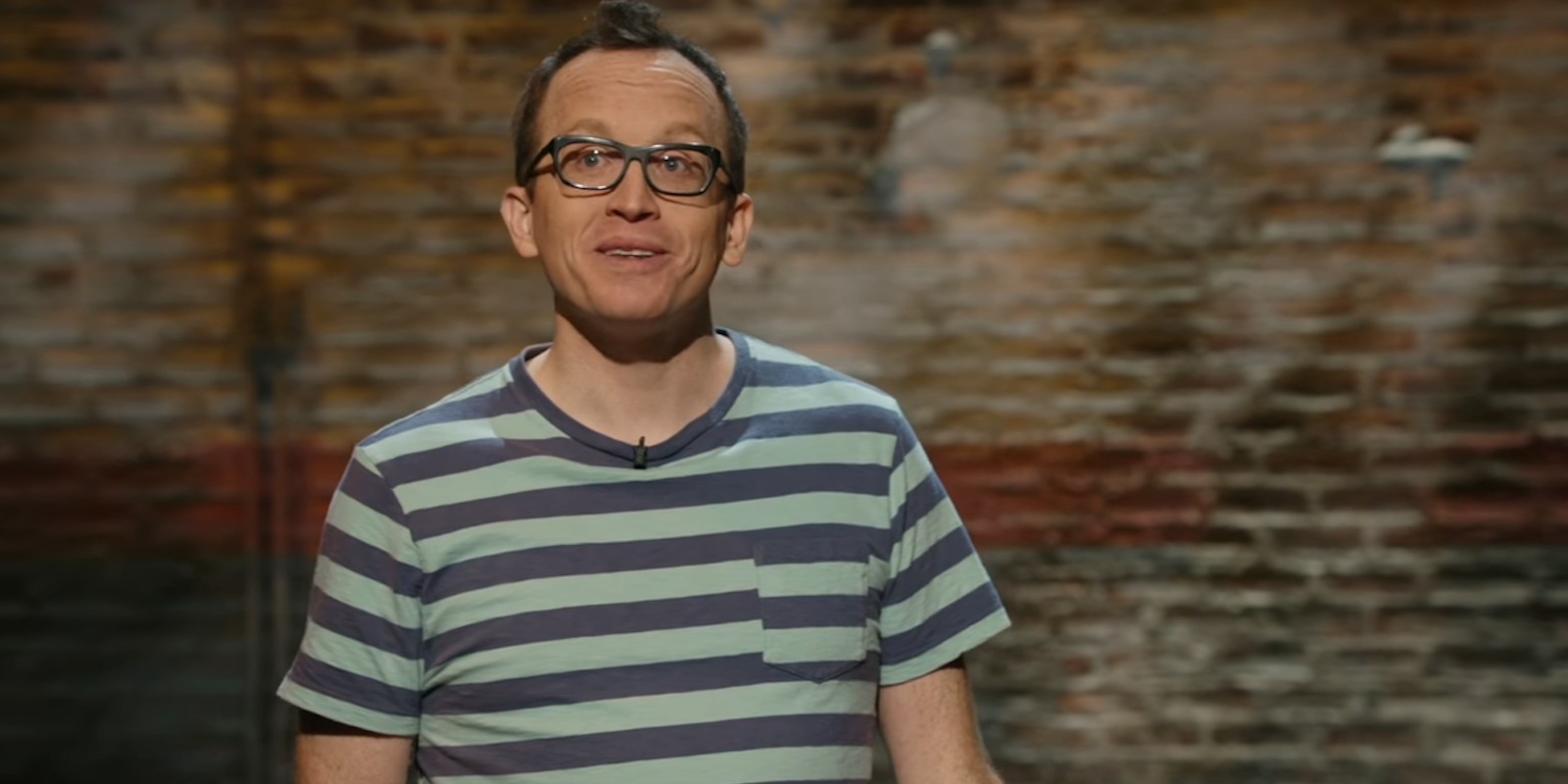Career Suicide, Chris Gethard’s new HBO special, starts with a warning: “I see a shrink. We’re good.”
With that out of the way, the comedian explores his past and present experiences with mental health. Adapted from his long-running solo show, Career Suicide doesn’t fall into comedians-talking-about-their-shrinks parody territory. He paints his longtime therapist Barb as a fellow weirdo, as a person who has a life outside her office and who’s even come to see his shows.
“Sometimes people just break,” he says. “Welcome to a comedy show.”
Early on Gethard details how he tried to kill himself at age 21 by crashing his car into a truck on a road in Clifton, New Jersey. In one of the special’s funniest bits, he recounts knowing he’d survived when three women who all sounded like Carmela Soprano opened his doors. The stigma of suicide, Gethard says, is how it’s viewed: “Suicide has a real branding problem.” He also admits he waited too long to reach out for help.
As host of The Chris Gethard Show, which is coming to truTV, he created a place where outsiders and weirdos could come and play. TCGS isn’t mentioned in the special, and his writing stint with SNL is only touched on. Gethard’s focus isn’t his career but the valley highs and mountain lows of mental health, delivered not via punchlines but stories that balance absurdity with gut-punch, like opening up to his mother (another Carmela Soprano) about suicidal thoughts. This kind of honesty has made fans open up to him with their own questions about depression.
This week, Netflix released Maria Bamford’s latest special Old Baby, which touches on her experiences with mental health but also focuses on how to find yourself again. Neal Brennan’s 3 Mics devotes a segment to his history with depression. Aparna Nancherla has taken her discussions of mental health to a podcast, Blue Woman Group. As the GOP bends over backward to take away health care for millions of people—particularly those with pre-existing conditions like mental illness and substance abuse—these specials and conversations come at a crucial time.
Elsewhere, Gethard discusses medication, and how it’s actually made him funnier, but he resists the “I’m cured” narrative. At 90 minutes, Career Suicide does feel a bit long, but it’s clear Gethard wanted to take his time. He gets people to laugh at the fact that sometimes people break, and there’s always a way to put yourself back together.
For more information about suicide prevention or to speak with someone confidentially, contact the National Suicide Prevention Lifeline (U.S.) or Samaritans (U.K.).


